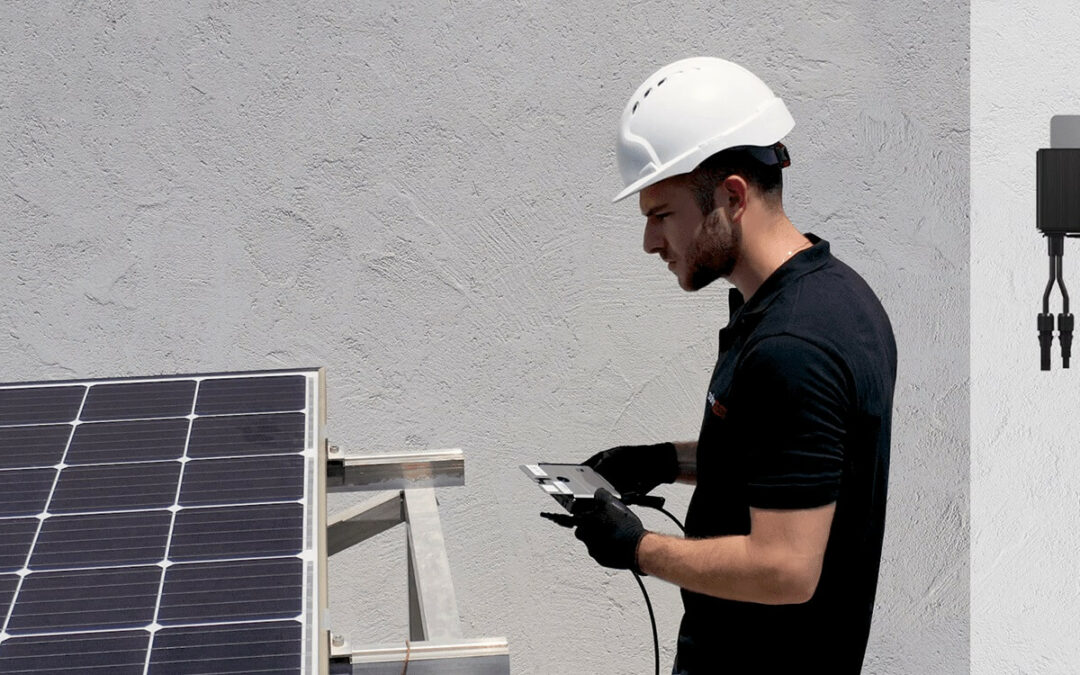☀️ A solar panel optimiser helps maximise the efficiency of your solar panels
☀️ There are two main types of optimisers: DC optimisers and smart solar panels
☀️ Micro-inverters are an alternative to optimisers, but more expensive
You might have heard that solar panels can help you save money on your energy bills and reduce your carbon footprint. But did you know that there is a way to make your solar panels even more efficient and profitable? That’s where solar panel optimisers come in.
Solar panel optimisers are devices that maximise the output of each individual solar panel by adjusting the voltage and current according to the environmental conditions and the performance of the other solar panels. They can also monitor the performance of each solar panel and detect any faults or issues.
In this blog post, I will explain why solar panel optimisers are a very wise investment and how they can enhance your solar PV system experience.
But if you want to find out how much you can save by installing solar panels with optimisers, we have a simple solution for you. Just fill in a few details below on the contact form and we will connect you with our expert solar team who will provide you with a free and personalised solar panel system quote.
What is a solar panel optimiser?
A solar panel optimiser is a device that boosts the performance of your solar panels by fine-tuning the output of each solar panel individually.
Think of your solar panel system as a chain. Normally, if one link (or solar panel) is weak, such as being shaded or dirty, the whole chain’s strength and output will suffer. But what if you could reinforce each link with a smart device that can adjust and optimise its condition?
That’s what a solar panel optimiser does. It’s a small gadget attached to each solar panel, making sure that each one is always working at its best potential.
The result? Your solar PV system produces more power, regardless of the circumstances.
How does a solar panel optimiser work?
A solar panel optimiser uses a technology called Maximum Power Point Tracking (MPPT) to enhance the electricity generation of each solar panel.
Every solar panel has a point where it can produce the most electricity, called the maximum power point. This point can change depending on factors like temperature and shading – but the optimiser keeps changing the voltage and current of its solar panel to make sure it stays at this maximum power point.
This optimisation means that, even if some panels are not working well because of external factors like shading or dirt, the other solar panels in the system are not affected and can keep generating electricity at their highest efficiency.
What are the different types of solar panel optimisers?
Solar optimisers come in two main varieties – DC optimisers and smart solar panels.
DC optimisers are smart devices that we attach to regular solar panels. They act like mini power stations, improving the DC (Direct Current) electricity from each solar panel before it is converted to AC (Alternating Current) electricity.
DC optimisers belong to a category of optimisers that are connected to each solar panel individually. This category is called module-level power electronics (MLPEs). On the other hand, smart solar panels have optimisers integrated into them, with no extra devices needed. So you get enhanced solar energy right away.
Both types of optimisers help your solar PV system work better, but their suitability depends on factors like the size, location, and shading conditions of your solar PV system setup.
Which type of solar panel optimiser is right for you?
The best solar panel optimiser for you depends on your energy needs, budget and long-term goals.
If you already have regular solar panels and want to improve their performance, DC optimisers are a good option. But if you are installing a new solar PV system or upgrading your old one, you might want to look at smart solar panels with optimisers built into them, offering a complete solar solution.
Ultimately, it’s always wise to consult with a professional who can help you decide which type of solar panel optimiser will give you the highest efficiency and output for your system, you can call us today on 01268 928 690 for free advice.
How much does a solar panel optimiser cost?
| Household size | Average number of solar panels | Estimated DC optimiser cost | Estimated smart solar panel cost |
|---|---|---|---|
| One-bedroom flat | 3 | £120 | £540 |
| 1-2 bedroom house | 8 | £320 | £1,440 |
| 3 bedroom house | 12 | £480 | £2,160 |
| 4-5 bedroom house | 16 | £640 | £2,880 |
The price of solar panel optimisers in the UK can vary a lot, mainly depending on the brand, type, and the number of panels in your system. In the table above, we’ve shown the average number of panels needed for a typical household size.
As a rough guide, you might expect to pay around £40 per DC optimiser, including installation if it’s your first time buying panels. For smart solar panels, you can expect to pay around £180 per panel.
Keep in mind that while this can increase the initial cost of your solar PV system, the improved efficiency often means better returns in the long run.
Pros and cons of solar panel optimisers
Pros
- Increased efficiency
- Overcome the impact of shading or debris
- Enhanced module-level monitoring
- Built-in safety mechanisms
Cons
- Additional cost
- Complex installation or retrofitting
- Maintenance and potential replacement costs
- Limited compatibility
Solar panel optimisers are a great addition to a solar PV system for those who want high efficiency, even in challenging conditions. Plus, some models have extra safety features and let you monitor the performance of each panel individually.
However, while the benefits are attractive, there are some drawbacks. The initial costs, including the cost of the optimisers themselves and possibly more complicated installation or retrofitting, can be significant.
It’s also important to make sure that the optimisers you choose are compatible with your specific panels and inverter. Not all panels and inverters may work well with all optimisers.
Are solar panel optimisers worth it?
Imagine this: your solar panels are working hard, but one is shaded by a tree or covered by a lot of bird droppings. Without optimisers, your whole system slows down – but with them, every solar panel is doing its best, no matter what.
Yes, there is an upfront cost, and it’s more equipment to maintain. But the power boost and peace of mind? That could easily make it worthwhile. It’s worth considering as a smart investment in your solar setup.
Do solar panel optimisers require any maintenance?
Solar panel optimisers are made to be low maintenance, just like the solar panels themselves. Once installed, they work silently in the background to improve your solar energy production.
However, as they are electronic devices, there’s always a possibility of problems or failures. This is where their monitoring feature is useful – it lets you track the performance of individual solar panels, so if an optimiser isn’t working properly, you’ll be able to notice it quickly.
Any maintenance or repair would usually involve a solar technician diagnosing and replacing the broken unit. Always check with your solar provider regarding specific maintenance procedures.
Are there any alternatives to solar panel optimisers?
If you’re not sure about solar panel optimisers, you have a few other choices.
The simplest one is to go with a traditional solar PV system with a central (or string) inverter. It’s a less complicated setup, but remember, if one solar panel performs poorly (maybe it’s a bit shaded), the whole solar PV system suffers.
Another choice is micro-inverters. These smart little MLPE devices that not only improve each solar panel’s output, but also change the electricity from DC (Direct Current) to AC (Alternating Current) right there on the spot.
Micro-inverters are a more expensive option, costing between 10-30% more than a standard central inverter, but they give you the best energy production and design flexibility of your solar PV system.
Conclusion
Solar panel optimisers can boost your solar power game by making each solar panel work its best, no matter what. They’re a bit more money upfront, but the potential benefits could be well worth it.
Want to learn more? Your best option is to talk to one of our friendly solar energy experts on 01268 928 690 or click on the ‘Enquire Now’ button below and we will help you find the right fit for your home and budget.
Frequently Asked Questions about Solar Panel Optimisers
Optimisers on solar panels for your home are not essential, but they can be a big benefit. If your panels face uneven shading or if your roof layout is complicated, optimisers can greatly improve your system’s efficiency by letting each panel work at its best, regardless of the others.
The number of optimisers you need depends on the number of solar panels in your system. That’s because each panel has its own optimiser. So, if you have a solar system with 20 panels, you’ll need 20 optimisers. Always check with your solar installer for your exact requirements.
The best choice between micro-inverters or optimisers depends on your specific needs. Micro-inverters can be good for smaller installations or if you want to grow your system over time. On the other hand, optimisers with a string inverter can be more economical for larger installations. Your decision should consider cost, compatibility, and the specific features of your property.
Solar panel optimisers are a brilliant addition to a solar PV system for those seeking high efficiency, in less-than-ideal conditions. Plus, some models offer enhanced safety features and allow you to monitor the performance of each panel individually.
Some solar PV systems can minimise the impact of shading using ‘optimisers’. If you don’t have shading, the use of optimisers is not necessary or beneficial, other than the increased monitoring opportunities they offer – they won’t generate more energy.
Here are some estimates of how long different types of optimisers can last: String Inverter – 5-12 years, Microinverter – 20-25 years, DC Optimizers – 20-25 years, Central Inverters – 5-10 years, Battery Based Inverters – 2-5 years.
Latest Solar Technology Posts
- Why Leisure Centres Should Invest in Solar Panels
 In recent years, the concept of sustainability has become increasingly vital in various industries, including leisure centres. As the global focus shifts towards environmental conservation and renewable energy sources, leisure centres are recognizing the importance of investing in sustainable practices to reduce their operating costs and their carbon footprint. One such sustainable solution gaining traction… Read more: Why Leisure Centres Should Invest in Solar Panels
In recent years, the concept of sustainability has become increasingly vital in various industries, including leisure centres. As the global focus shifts towards environmental conservation and renewable energy sources, leisure centres are recognizing the importance of investing in sustainable practices to reduce their operating costs and their carbon footprint. One such sustainable solution gaining traction… Read more: Why Leisure Centres Should Invest in Solar Panels - Solar Panels and EPC Ratings
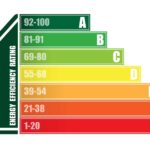 Solar panels have become increasingly popular as a sustainable energy solution, offering numerous benefits for both residential and commercial properties. In parallel, Energy Performance Certificate (EPC) ratings serve as indicators of a building’s energy efficiency. Understanding how solar panels can impact EPC ratings is crucial for maximizing energy savings and environmental benefits. This blog post… Read more: Solar Panels and EPC Ratings
Solar panels have become increasingly popular as a sustainable energy solution, offering numerous benefits for both residential and commercial properties. In parallel, Energy Performance Certificate (EPC) ratings serve as indicators of a building’s energy efficiency. Understanding how solar panels can impact EPC ratings is crucial for maximizing energy savings and environmental benefits. This blog post… Read more: Solar Panels and EPC Ratings - SunSynk Batteries: Innovative Energy Storage
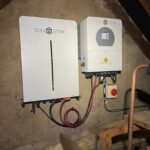 SunSynk Batteries have emerged as a leading solution in the realm of energy storage, offering a range of innovative features and benefits that cater to various applications. With a focus on sustainability and cutting-edge technology, SunSynk Batteries have captured the attention of residential, commercial, and industrial consumers alike. This blog post delves into the intricate… Read more: SunSynk Batteries: Innovative Energy Storage
SunSynk Batteries have emerged as a leading solution in the realm of energy storage, offering a range of innovative features and benefits that cater to various applications. With a focus on sustainability and cutting-edge technology, SunSynk Batteries have captured the attention of residential, commercial, and industrial consumers alike. This blog post delves into the intricate… Read more: SunSynk Batteries: Innovative Energy Storage - Solar Industry Update: Battery Installations in Lofts
 The British Standards Institute (BSI) has recently released new recommendations regarding home battery installations, including those in loft spaces. One common inquiry we receive from our customers following the publication of the Publicly Available Specification (PAS) is whether a solar battery can be installed in a loft. The answer is a resounding yes, with some… Read more: Solar Industry Update: Battery Installations in Lofts
The British Standards Institute (BSI) has recently released new recommendations regarding home battery installations, including those in loft spaces. One common inquiry we receive from our customers following the publication of the Publicly Available Specification (PAS) is whether a solar battery can be installed in a loft. The answer is a resounding yes, with some… Read more: Solar Industry Update: Battery Installations in Lofts - Voltage Optimisers, What Are They and How Do They Work?
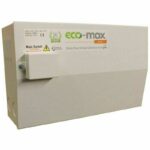 What is voltage optimisation? A voltage optimiser is a smart device that can help you save energy and reduce your carbon footprint. It works by adjusting the power supply from the National Grid to the ideal level for your electrical devices and appliances at home or work. This way, you can use less electricity and… Read more: Voltage Optimisers, What Are They and How Do They Work?
What is voltage optimisation? A voltage optimiser is a smart device that can help you save energy and reduce your carbon footprint. It works by adjusting the power supply from the National Grid to the ideal level for your electrical devices and appliances at home or work. This way, you can use less electricity and… Read more: Voltage Optimisers, What Are They and How Do They Work? - String Inverter vs Microinverter: Centralized vs Modular
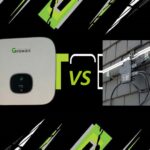 Imagine waking up to a sunny morning, not just because the birds are chirping, but because your roof is silently turning sunlight into clean energy for your entire home. That’s the beauty of solar power, but with all the different equipment options, it can feel overwhelming. One crucial decision you’ll face is choosing between string… Read more: String Inverter vs Microinverter: Centralized vs Modular
Imagine waking up to a sunny morning, not just because the birds are chirping, but because your roof is silently turning sunlight into clean energy for your entire home. That’s the beauty of solar power, but with all the different equipment options, it can feel overwhelming. One crucial decision you’ll face is choosing between string… Read more: String Inverter vs Microinverter: Centralized vs Modular - Why UK Homeowners with Solar Panels Need Bird Proofing (Beyond the Basics)
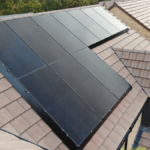 Imagine waking up to the quiet hum of your solar panels, generating clean energy to power your home. It’s a beautiful image, symbolizing lower electricity bills and sustainability. But what if a gang of birds decided the solar panels on your roof were the perfect spot for their new condo complex? Unfortunately, this idyllic scene… Read more: Why UK Homeowners with Solar Panels Need Bird Proofing (Beyond the Basics)
Imagine waking up to the quiet hum of your solar panels, generating clean energy to power your home. It’s a beautiful image, symbolizing lower electricity bills and sustainability. But what if a gang of birds decided the solar panels on your roof were the perfect spot for their new condo complex? Unfortunately, this idyllic scene… Read more: Why UK Homeowners with Solar Panels Need Bird Proofing (Beyond the Basics) - How AI could supercharge your solar panels
 Imagine stepping outside on a crisp January morning, a mug of steaming tea warming your hands. You glance at your rooftop, not with dread at energy bills, but with a mischievous grin. Why? Because the sun, that cheeky orb in the sky, is being squeezed for every juicy watt it holds thanks to your AI-powered… Read more: How AI could supercharge your solar panels
Imagine stepping outside on a crisp January morning, a mug of steaming tea warming your hands. You glance at your rooftop, not with dread at energy bills, but with a mischievous grin. Why? Because the sun, that cheeky orb in the sky, is being squeezed for every juicy watt it holds thanks to your AI-powered… Read more: How AI could supercharge your solar panels - New solar panel concept could reduce payback time to just five years
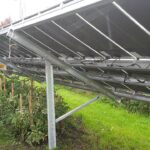 Researchers have conducted a comprehensive analysis and determined that a ground-breaking renewable energy concept has the potential to significantly reduce the payback period for solar panels to less than five years. This innovative approach, known as agrivoltaics or Agri-PV, involves the integration of solar farms with “shadow-friendly” crops. A team of experts from the esteemed… Read more: New solar panel concept could reduce payback time to just five years
Researchers have conducted a comprehensive analysis and determined that a ground-breaking renewable energy concept has the potential to significantly reduce the payback period for solar panels to less than five years. This innovative approach, known as agrivoltaics or Agri-PV, involves the integration of solar farms with “shadow-friendly” crops. A team of experts from the esteemed… Read more: New solar panel concept could reduce payback time to just five years - Soak up the sunshine, because solar power is on fire!
 2023 was a record year for renewable energy, thanks in no small part to our sun-loving friend, solar. The International Energy Agency (IEA) says solar power added enough juice to the grid to power up half of all new renewable energy in 2023 – that’s a 50% jump! And this isn’t just a one-year blip,… Read more: Soak up the sunshine, because solar power is on fire!
2023 was a record year for renewable energy, thanks in no small part to our sun-loving friend, solar. The International Energy Agency (IEA) says solar power added enough juice to the grid to power up half of all new renewable energy in 2023 – that’s a 50% jump! And this isn’t just a one-year blip,… Read more: Soak up the sunshine, because solar power is on fire! - Reasons Why Solar Energy is the Ultimate Homeowner’s Investment
 In recent years, solar energy has emerged as a game-changer in the world of residential power generation. As concerns about the environment and rising utility costs continue to grow, homeowners are increasingly turning to solar energy as a sustainable and financially savvy solution. This article aims to explore the reasons why solar energy is the… Read more: Reasons Why Solar Energy is the Ultimate Homeowner’s Investment
In recent years, solar energy has emerged as a game-changer in the world of residential power generation. As concerns about the environment and rising utility costs continue to grow, homeowners are increasingly turning to solar energy as a sustainable and financially savvy solution. This article aims to explore the reasons why solar energy is the… Read more: Reasons Why Solar Energy is the Ultimate Homeowner’s Investment - Why Your Business Should Invest in Commercial Solar Panels
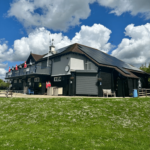 Solar panels on houses and residential properties have become increasingly common in the last year. The number of individuals seeking a more sustainable way of living continues to grow each year. However, the pursuit of a greener existence is not limited to domestic life. Investing in commercial solar panels is an excellent way to reduce… Read more: Why Your Business Should Invest in Commercial Solar Panels
Solar panels on houses and residential properties have become increasingly common in the last year. The number of individuals seeking a more sustainable way of living continues to grow each year. However, the pursuit of a greener existence is not limited to domestic life. Investing in commercial solar panels is an excellent way to reduce… Read more: Why Your Business Should Invest in Commercial Solar Panels

